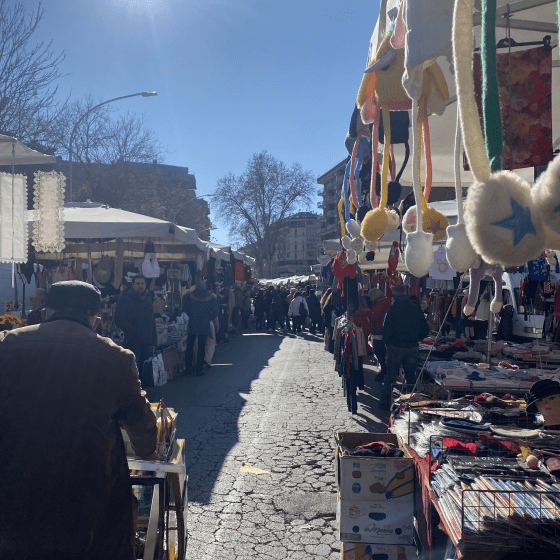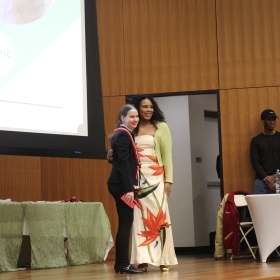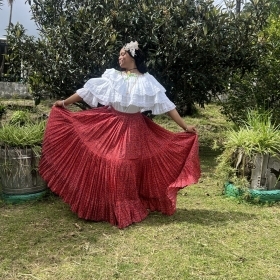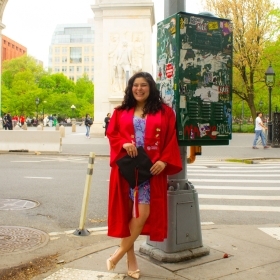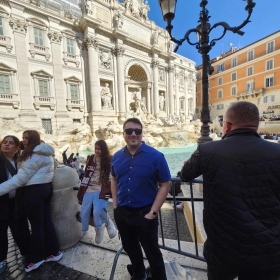Self-Discovery Abroad: Insights from a St. John’s Student’s Journey
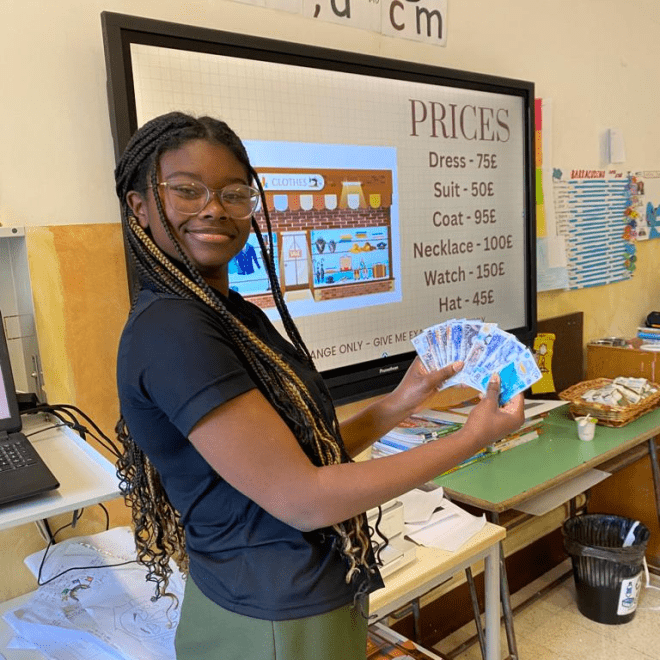
Have you ever longed for a life-changing experience that challenges you to step outside your comfort zone and reveals a deeper understanding of yourself? Studying abroad has the power to be that pivotal moment of self-discovery.
In this Q&A, we hear from Acayla Wray, a St. John’s University education major and aspiring teacher who spent a life-changing semester in Rome, Italy. Now a senior, she reflects on her study abroad journey, the challenges she faced that forced her to grow, and the unexpected passions she discovered.
What were your initial expectations before starting your journey to study abroad?
It wasn’t until the almost nine-hour plane ride when I started to think, “What did I get myself into?” However, knowing there was a designated St. John’s campus in Rome made me feel confident I would receive the support I needed throughout the program.
What was your biggest challenge while studying abroad, and how did you overcome it?
Navigating the city as a local was my biggest challenge abroad. It took me two months to figure out how to use the metro system in Rome on my own. The only way to overcome that fear was to take the bus and train daily. During the last month of my trip, I became familiar with several bus routes and could give decent directions to people.
Did you experience culture shock? If so, how did you navigate it?
I didn’t experience immediate culture shock in Rome because the city and its people are similar to New York. The main difference is that people in Rome tend to stare a lot, which can make you feel uncomfortable, confused, or angry.
We were warned about this multiple times in ourbiweekly Cultural Mentoring Program meetings. In these sessions, our professors discussed culture shock and how to handle it all. They were very insistent about paying attention when people talk and looking back at them.
Please share an example of a significant learning experience through the program.
While abroad, I completed fieldwork by taking on the role of a student teacher at an Italian elementary school. This experience taught me to think quickly on my feet. If a lesson wasn’t going well or if the materials I needed were unavailable, I had to come up with a solution fast. This experience enhanced my ability to think of solutions quickly and efficiently.
Can you share a time when you had to step out of your comfort zone? What did you learn from it?
In Professoressa Lucy’s Italian class. She’s a brilliant and involved teacher who truly cares about her students and growing their knowledge of the language. She’s also a stereotypical professor who calls random people to speak Italian. There were many silent panic attacks in her classroom because I was so scared of saying things wrong; however, I stepped out of my comfort zone without missing one class. There were so many days I wanted to skip, but then I would think back to walking outside of campus and not knowing anything that was being said. I learned to advocate for myself when I didn’t understand something.
Did you discover any passions or interests you didn’t know you had before your trip?
A passion I found while studying abroad is collecting clocks. This ties into another interest of mine: going to flea markets. I’m a big thrifter, especially in clothes. I have visited many places around Rome, but nothing beats the flea markets I have visited, specifically Porta Portese.
I used to go there at least twice a month, even though it was only open on Sundays. One time, I bought a tiny, yellow clock for 50 cents. It didn’t tell the correct time, but it was cute and had a satisfying tick that helped me fall asleep at night. From that purchase onward, I have loved to buy quirky, fun clocks.
What advice would you give to students considering studying abroad for the first time?
The advice I give to anyone studying abroad is to make memories any way you can. Whether it’s your first, third, or 10th time abroad, you should make as many memories as possible with the people around you, the cities you visit, the food you eat, and the long train rides you take. You will miss it.
Live in the moment as much as you can to vividly relive them in the future when you think back to them. Many times throughout those months, I was so caught up in my thoughts that I forgot I could at least be in my head staring at the Trevi Fountain.
In addition, here are some other tips I have for students considering studying abroad:
Never feel that you are being overly ambitious.
If you want to visit 25 new restaurants, but only have time for 15, don’t be hard on yourself! You are a human and a student, so budgeting money and time will be a considerable skill to learn.
Trust the process!
You don’t, and won’t, know everything. You will have questions. It’s okay not to know things. You are not the first—and will not be the last—person to study abroad, so ask questions! When I was there, the staff (my favorites being Shelby, Cristina, the deacons, and the RAs) were incredibly warm and open, so don’t be afraid!
Be willing to take advice.
People will recommend places to go, things to do/say, where to get tickets, what to buy, what not to buy, what to wear, etc. Please consider what they say! Use your judgment to what advice you take closer to the heart, but if they mention a to-die-for galette place or coffee shop, write it down and visit.
Be sure you can handle it.
My study abroad experience was a lot. I had many moments of being homesick, overwhelmed with school, and culturally shocked. I urge you to think about the entire experience. Many fun things will happen, but remember that you are studying abroad, which means you are a student before anything else. Scheduling to start and finish writing a discussion post on a flight back to campus might be doable in theory, but stressful in practice.


